Certificate in Sport Social Work
Summary
Understanding and supporting athletes and their overall health and welfare has been a prominent specialty service area that social workers have formally and informally navigated for decades. And today, the need for sports social workers with advanced training has never been more requested across sport settings (youth, collegiate, professional, and geriatric). Research currently suggests that: (1) athletes engage in sport across the lifespan to foster a greater sense of belonging and social connection; (2) athlete mental health needs are increasing and licensed, mental health providers are needed to meet this growing demand; and (3) athletes are using their platform to address social injustices and bring awareness to longstanding disparities across our country. As established agents of change, social workers uphold the profession's mission and core values, while having an expansive scope of practice to improve outcomes for individuals, communities, and the larger society.
In addition to the live schedule, program includes 20 hours of recorded lectures:
Overview: History of Sport Social Work
Adjustment/Transition into College Athletics
Integrated Health in Sports Settings
Body Image & Perfectionism
Multidisciplinary Eating Disorders Team
Psychopharmacology and Navigating USADA & WADA, Drug Testing
Sports & Body Image: Identifying Risks and Recommendations for Clinical Intervention
Injury: Loss of Identity
Post Concussion Care
Sport Psychology: Basic Skills, Preparatory Skills, Performance Skills
Performance Anxiety
Intro to Sport Psychology
Transitioning Out of Sport: Clinical Considerations
Supporting LGBTQ+ Athletes in Sports
Critical Research Perspectives for Contemporary Sport Culture
ADHD and Anxiety
Ensuring Healthy Development for Youth through Sport and Recreation
Athletes Connected: Developing Community-Based Programming
Macro Social Work Practice in Collegiate Sport
Sports in Older Adults: Once an Athlete, Always an Athlete
Understanding Racial Diversity and Social Justice in Sports
Sleep and Sport
In addition to the live schedule, program includes 20 hours of recorded lectures:
Overview: History of Sport Social Work
Adjustment/Transition into College Athletics
Integrated Health in Sports Settings
Body Image & Perfectionism
Multidisciplinary Eating Disorders Team
Psychopharmacology and Navigating USADA & WADA, Drug Testing
Sports & Body Image: Identifying Risks and Recommendations for Clinical Intervention
Injury: Loss of Identity
Post Concussion Care
Sport Psychology: Basic Skills, Preparatory Skills, Performance Skills
Performance Anxiety
Intro to Sport Psychology
Transitioning Out of Sport: Clinical Considerations
Supporting LGBTQ+ Athletes in Sports
Critical Research Perspectives for Contemporary Sport Culture
ADHD and Anxiety
Ensuring Healthy Development for Youth through Sport and Recreation
Athletes Connected: Developing Community-Based Programming
Macro Social Work Practice in Collegiate Sport
Sports in Older Adults: Once an Athlete, Always an Athlete
Understanding Racial Diversity and Social Justice in Sports
Sleep and Sport
- Describe how a sports medicine team works closely together to improve student-athlete outcomes.
- Identify three essential skills to why coaches are a key part to student athlete outcomes
- Define next steps in sport social work and the emerging need in the sport industry.
- Describe the benefits of experiential learning opportunities within sport.
- Identify major historical steps in the development of sport social work.
- Describe current mental health programs and their missions and structures.
- Name two instrumental social justice moments in sport that contributed to global changes.
- Outline gaps in sport social work research and growth trends for the field.
- Describe the unique mental health and performance needs of LGBTQ+ athletes.
- Describe the impact of community/teams on inclusion of LGBTQ+ athletes.
- Describe considerations for building an integrated health team to effectively address an athlete’s medical needs.
- Describe pathways to leadership in sport for social workers.
- Describe how to use behavior activation to improve an athlete's outcomes.
- Identify considerations for responding to the demand and need for clinical services after implementing outreach and education programs.
- Use culturally-responsive language and engagement strategies for addressing body image and perfectionism in sport.
- Associate physiological and psychological aspects of sports performance.
- Describe the impact of concussion management on athletes, coaches, team, and other support staff.
- Evaluate an athlete's transition out of sport, considering the impact on identity, and stages of grief and loss.
- Describe how aging impacts older adults’ experience of being a sports participant or fan.
- Identify three interventions that can reconnect older adults with involvement in sports.
- Describe strategies to identify and address eating disorders and disordered eating behaviors across the spectrum of care.
- Identify risk factors and assess for potential disordered eating in athletes, encouraging athletes to get help proactively.
- Identify the diagnostic criteria, symptoms, and course of treatment for insomnia/delayed sleep-wake disorders.
- Outline drug testing protocols and banned substances, and identify resources to help athletes mitigate risk around banned substances.
- Describe the role of sport psychologists and identify common issues sport psychologists help athletes address.
- Outline best practices on working in multidisciplinary eating disorder teams.
- Describe the relationships between ADHD and student-athlete functioning
- Outline three different phases of mental skills training.
- Implement best practice mental health crisis intervention assessment and intervention models within an organization.
- Describe a framework for eliminating self-defeating attitudes.
- Describe strategies for helping athletes navigate developmental changes from adolescence to adulthood.
- Complete a biopsychosocial history using the Bronfenbrenner's ecological model from an athletic perspective. Identify ways that mental health manifests in athletes differently from the non-athlete population. Distinguish between a performance and mental health intake and what is important to capture when working with athletes on performance enhancement. Describe positive and negative mental and physical impacts of sport on youth, and the effect coaches have on youth athlete development in and out of sport. Apply theories of identity development, resources, and treatment options to assist with transition management and adjustment disorders.
Agenda
| Date | Time | Description |
|---|---|---|
| June 27, 2023 | 3:00pm - 4:00pm | Intro to the Sports Social Work Certificate Program |
| June 27, 2023 | 4:00pm - 5:00pm | Understanding Athlete Health Needs |
| July 11, 2023 | 3:00pm - 5:00pm | Treatment Needs: Managing Mental Health Crises with Athletes |
| July 18, 2023 | 3:00pm - 3:30pm | Behavior Activation & Sport |
| July 18, 2023 | 3:30pm - 4:00pm | Athletes Connected: Responding to the Program Outcomes |
| July 18, 2023 | 4:00pm - 5:00pm | Alcohol and Athletics: Two Things that Do Not Mix |
| July 25, 2023 | 3:00pm - 4:00pm | Self Defeating Attitudes and Behaviors |
| July 25, 2023 | 4:00pm - 5:00pm | Developing Healthy Relationships |
| August 1, 2023 | 3:00pm - 4:00pm | Lessons Learned from a Interprofessional Team in Sports Medicine |
| August 1, 2023 | 4:00pm - 5:00pm | Working in Collaboration with Coaches |
| August 8, 2023 | 3:00pm - 4:00pm | Importance of Internships and Fellowships within Sport |
| August 8, 2023 | 4:00pm - 5:00pm | Future of Sports Social Work |
Instructors
 G. Warren Clark
G. Warren Clark James Houle
James Houle LaTisha Bader
LaTisha Bader Cassandra Pasquariello Wallace
Cassandra Pasquariello Wallace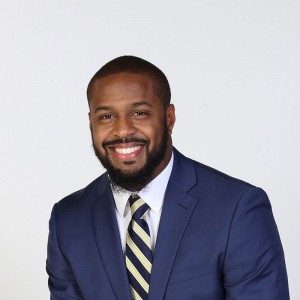 Jeffrey Porter
Jeffrey Porter Caroline Mandel
Caroline Mandel Erin Albert
Erin Albert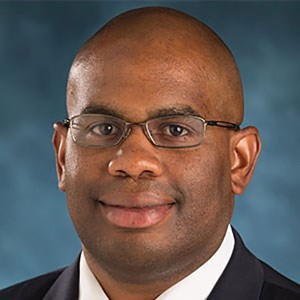 Darryl Conway
Darryl Conway William L. Vanderwill
William L. Vanderwill Haven Essien
Haven Essien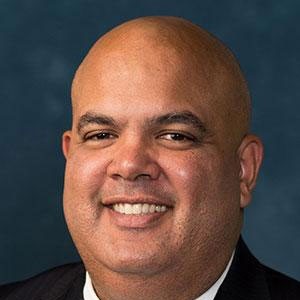 Warde J. Manuel
Warde J. Manuel Tarkington J. Newman
Tarkington J. Newman Emily B. Klueh
Emily B. Klueh Desiree Messina
Desiree Messina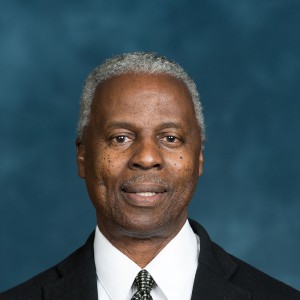 Gregory Harden
Gregory Harden Abigail O'Connor
Abigail O'Connor Rachel A. Amity
Rachel A. Amity Nicholas Velissaris
Nicholas Velissaris Christina N. Murphy
Christina N. Murphy Abigail H. Eiler
Abigail H. Eiler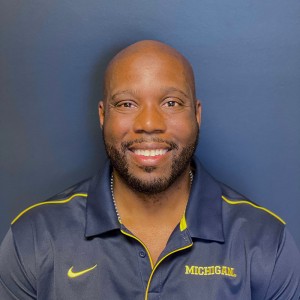 Kevyn A. Monier
Kevyn A. Monier Eliza Beird
Eliza Beird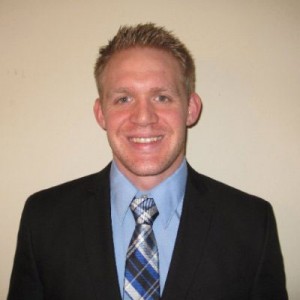 Nathan D. Recknagel
Nathan D. Recknagel Brian R Lampman
Brian R Lampman Amy Miller
Amy Miller Anthony Rossi
Anthony Rossi
hybrid certificate program
Sessions
- 6/27/2023 3:00 PM to 5:00 PM
- 7/11/2023 3:00 PM to 5:00 PM
- 7/18/2023 3:00 PM to 5:00 PM
- 7/25/2023 3:00 PM to 5:00 PM
- 8/1/2023 3:00 PM to 5:00 PM
- 8/8/2023 3:00 PM to 5:00 PM
CE Contact Hours
- 20 regular asynchronous online
- 12 regular live interactive online
Skill Level
Intermediate
Location
online
Fees
$975.00
You are viewing a previously offered course.
View our course catalog for currently offered courses.
